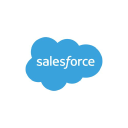How I Started A Multimillion Business Offering Walking Tours
Hello! Who are you and what business did you start?
Hi. My name is Paul Bennett and I’m a co-founder of Context Travel. Context connects intellectually curious travelers with local experts in cultural capitals around the world for walking tours.
Context’s core product is small-group and private walking tours. The small groups are super small—six people max—which means that they are incredibly hands-on and personalized. They actually feel nothing like a normal walking tour (which I hate, by the way) and something more like walking around the city with a wonderfully conversational professor who knows everything there is to know about Rome, London, Shanghai, or any of the 65 other cities where we operate.
We grew Context from zero to multimillion in revenue over a decade until we took investment and stepped back from the day-to-day in 2018. Today I sit on the board, mentor other entrepreneurs, and am working on a new start-up.

Download the report and join our email newsletter packed with business ideas and money-making opportunities, backed by real-life case studies.

Download the report and join our email newsletter packed with business ideas and money-making opportunities, backed by real-life case studies.

Download the report and join our email newsletter packed with business ideas and money-making opportunities, backed by real-life case studies.

Download the report and join our email newsletter packed with business ideas and money-making opportunities, backed by real-life case studies.

Download the report and join our email newsletter packed with business ideas and money-making opportunities, backed by real-life case studies.

Download the report and join our email newsletter packed with business ideas and money-making opportunities, backed by real-life case studies.

Download the report and join our email newsletter packed with business ideas and money-making opportunities, backed by real-life case studies.

Download the report and join our email newsletter packed with business ideas and money-making opportunities, backed by real-life case studies.




















